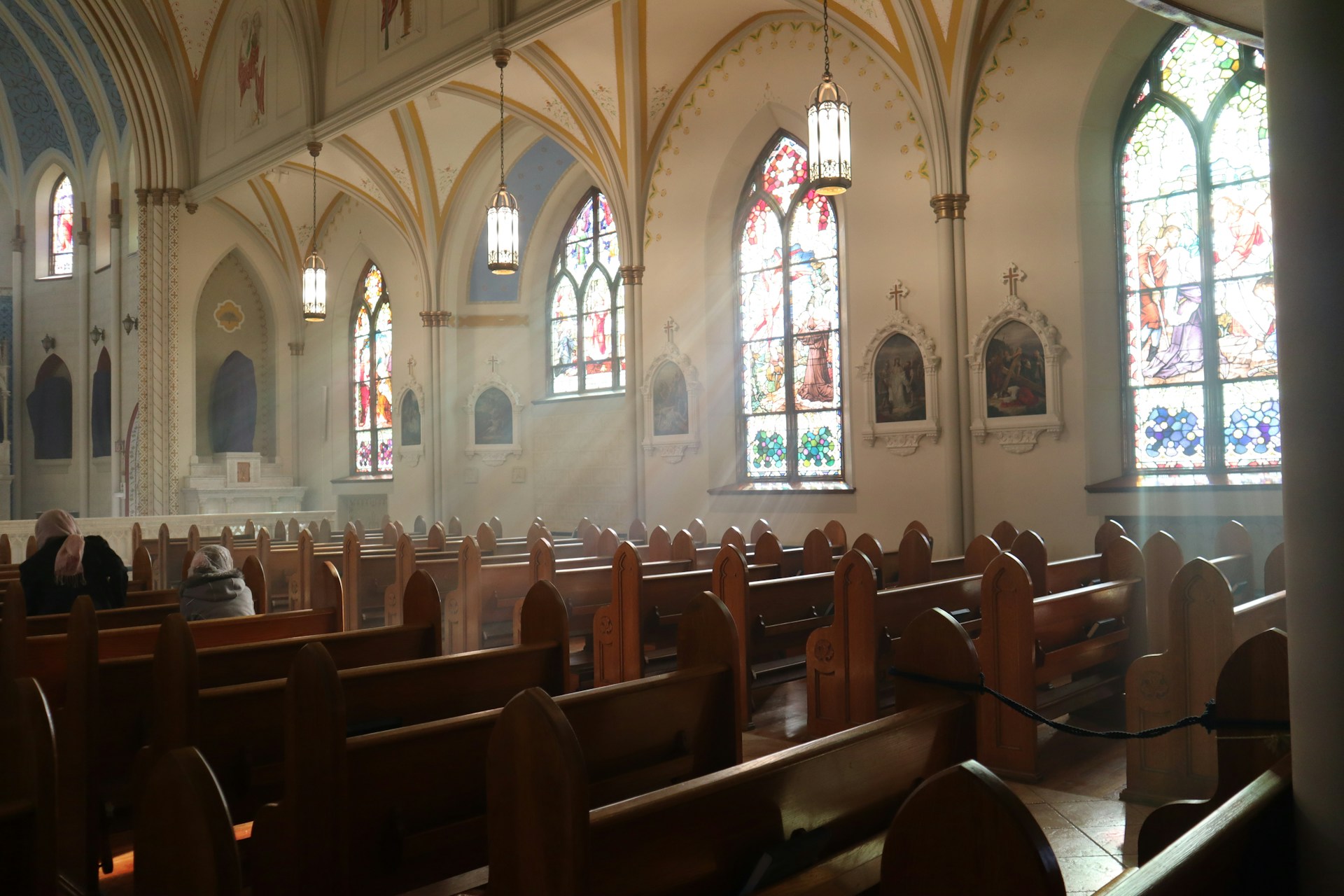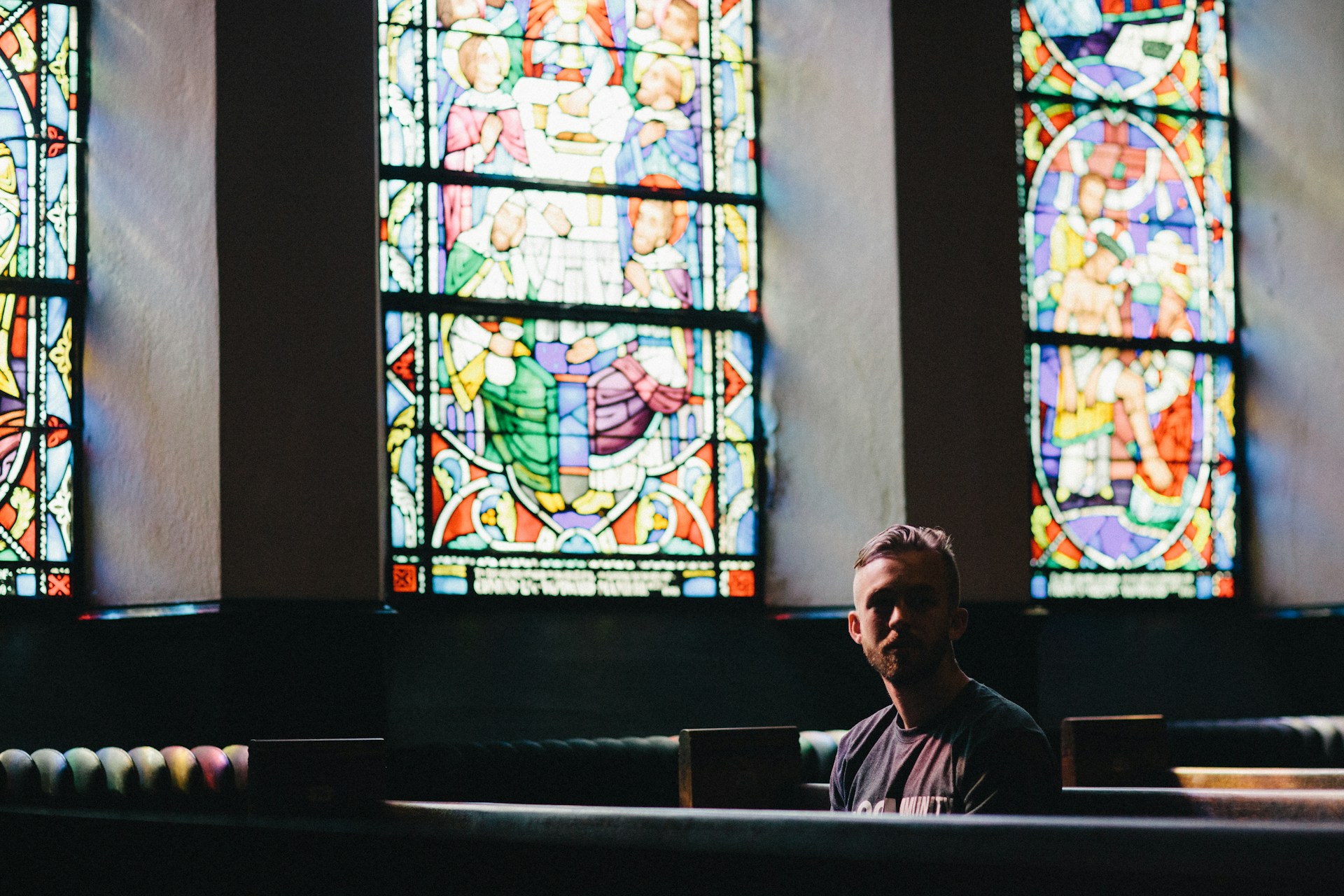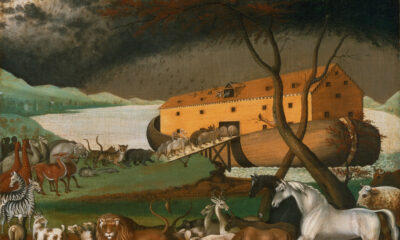Self-Reliance
Embezzlement Scandal Shakes New Jersey Catholic Parishes

In a striking case that underscores the importance of vigilance and integrity within our cherished religious institutions, a former bookkeeper in New Jersey has pled guilty to embezzling nearly $300,000 from two Roman Catholic parishes. This incident serves as a sobering reminder of the need for strong moral values and accountability, especially within the sacred spaces where faith and community intersect.
Melissa Rivera, who served as a bookkeeper at Our Lady of the Mountain in Washington Township and Our Lady of Good Counsel in Pompton Plains, admitted to her crimes, which took place over a span of six years. The Morris County Prosecutor’s Office revealed that Rivera stole $287,487 from Our Lady of the Mountain by writing herself a staggering 137 checks. Additionally, she misappropriated $5,242 from Our Lady of Good Counsel through three more checks.
The Diocese of Paterson played a crucial role in uncovering Rivera’s misconduct. In a statement, they explained how their Department of Finance detected “irregularities in the check-writing activity” during routine financial oversight. This diligence led to a deeper investigation, revealing a “suspected pattern of alleged embezzlement,” prompting immediate action and the termination of Rivera’s employment.
The Diocese’s proactive approach highlights the importance of maintaining robust financial controls to protect church resources. They have since implemented several measures to prevent future incidents, including a hotline managed by EthicsPoint. This initiative encourages transparency and accountability by allowing parishioners and others to report any concerns regarding financial misconduct.
Rivera’s sentencing, scheduled for July 11, will include a probation period with 364 days in the Morris County Correctional Center. She is also required to repay the full amount stolen, totaling $292,728, to the affected churches.
This case is a poignant reminder of the biblical principles of honesty and stewardship that should guide our actions. It is essential for communities to remain vigilant and uphold the values that form the foundation of our faith and freedoms. By fostering environments of trust and integrity, we can ensure that our religious institutions continue to be beacons of hope and moral guidance in an ever-changing world.
Let us know what you think, please share your thoughts in the comments below.
Self-Reliance
Bishops Rally Against Immigration Raids in California

In a powerful demonstration of faith and moral conviction, California Episcopal bishops have raised their voices in response to the recent federal immigration raids in Los Angeles. These raids, which began on June 6, have sparked significant unrest and concern among Christian communities, highlighting the need for a faith-driven approach to justice and compassion.
The bishops, representing dioceses across California, have issued an open letter addressing the impact of these raids on families and communities. Their message resonates deeply with those who uphold traditional values and the sanctity of family.
“We are concerned that military deployments will escalate the confrontations unnecessarily and worry that all of our regions in California may be subject to future deployments that heighten tensions rather than resolving them,” the bishops expressed. This sentiment underscores the importance of seeking peaceful solutions that reflect Christian teachings and respect for human dignity.
Bishop John Harvey Taylor, Episcopal Bishop of Los Angeles, shared his personal anguish on social media, revealing his “deep pain and anger” after 14 members of a single congregation were detained by Immigration and Customs Enforcement (ICE). This poignant testimony highlights the emotional toll on communities when loved ones are separated.
“People feel angry and threatened that the haven they sought in our communities is no longer safe,” the letter continued. “U.S. citizens and legal residents feel deep grief at losing beloved friends and family members. Children whose parents are deported face uncertain futures. In our churches, we strive to protect our members who are at risk.”
The bishops’ call to action is rooted in their Baptismal Covenant, urging the Episcopal community to “strive for justice and peace among all people, and respect the dignity of every human being.” This powerful reminder of Christian duty aligns with the values of faith, family, and freedom that are cherished by many Americans.
The raids have also drawn attention from other Christian leaders, who have voiced their concerns over the aggressive nature of the operations. Pastor Alfredo Lopez recounted a troubling encounter near Downey Memorial Christian Church, where immigration officers surrounded a man. Despite repeated requests for identification, the agents refused to comply.
“When we said that we don’t want this on our property, one of the agents shouted back, ‘The whole country is their property,’” Lopez shared. Such confrontations underscore the need for respectful dialogue and adherence to the principles of liberty and justice.
The raids, described as employing “military-style” tactics, resulted in the arrest of 44 individuals for alleged immigration violations. This has led to protests and confrontations, with demonstrations escalating to the point of a downtown curfew being enforced.
In response to the unrest, President Trump took decisive action by federalizing California’s National Guard, deploying an additional 2,000 troops along with 700 U.S. Marines. While some critics have labeled this move as an unnecessary escalation, it reflects a commitment to maintaining order and protecting American communities.
As we navigate these complex issues, it is crucial to remember the foundational values that guide us—faith, family, and freedom. By upholding these principles, we can work towards a society that respects the dignity of every individual while ensuring the safety and security of our nation.
Let us know what you think, please share your thoughts in the comments below.
Self-Reliance
Church Theft Scandal Ignites Urgent Push for Trust

In a world where integrity and accountability are increasingly under attack, the recent case of Melissa Rivera serves as a stark reminder of the importance of upholding Christian values and moral responsibility. Rivera, a former bookkeeper for two Roman Catholic churches in Morris County, New Jersey, has pled guilty to embezzling nearly $300,000 from her employers, Our Lady of the Mountain in Washington Township and Our Lady of Good Counsel in Pompton Plains.
The Morris County Prosecutor’s Office revealed that Rivera’s crimes took place over a six-year period, from May 2018 to May 2024. During this time, she managed to write herself a staggering 137 checks from Our Lady of the Mountain, amounting to $287,487. Additionally, she stole $5,242 from Our Lady of Good Counsel through three checks.
It is heartening to see the Diocese of Paterson taking decisive action to uncover and address this wrongdoing. The Diocese’s Department of Finance, through its diligent oversight, noticed “irregularities in the check-writing activity” and promptly initiated an investigation. This led to the immediate termination of Rivera’s employment and the involvement of the Morris County Prosecutor’s Office.
The Diocese of Paterson has shown commendable leadership by identifying the financial control weaknesses that allowed such embezzlement to occur. Their proactive steps to prevent future incidents include the implementation of a hotline administered by an independent third-party company. This hotline empowers employees, volunteers, vendors, and parishioners to report any suspected financial or other misconduct, ensuring transparency and accountability within the church community.
Rivera’s sentencing is scheduled for July 11, and as part of her probation, she will spend 364 days in the Morris County Correctional Center. Furthermore, she is required to repay the full amount she embezzled, totaling $292,728. This case serves as a powerful reminder that justice, guided by Christian morality, will prevail.
In these challenging times, it is crucial for us to remain vigilant and committed to the values that have long defined our great nation: faith, family, and freedom. As we navigate the complexities of modern life, let us draw strength from our shared heritage and continue to uphold the principles that have made America a beacon of hope and righteousness.
Let us know what you think, please share your thoughts in the comments below.
Self-Reliance
Discover the Timeless Wisdom Behind the Seven-Day Week

In a world where time is often dictated by nature, the concept of a week stands as a testament to divine wisdom. Unlike a day, month, or year, which are defined by celestial movements, the seven-day week has no natural explanation. Its origin is deeply rooted in the Bible, where God commands, “Six days you shall work, and on the seventh you shall rest.”
This biblical principle is not just a religious edict but a profound insight into human life and productivity. The Soviet Union’s failed attempt in the 1930s to abolish the seven-day week in favor of a four or five-day week, aimed at eradicating religious influence, only underscores the enduring truth found in Scripture.
The Bible’s guidance on work and rest is clear and universal. It elevates work from mere necessity to a value, emphasizing that “you shall work.” This perspective transforms work into a meaningful endeavor, whether it’s paid employment, volunteering, or the noble task of child-rearing. The key is that the activity is demanding, consistent, and productive.
The story of Joseph in the Bible exemplifies this principle. Despite his circumstances as a slave and prisoner, Joseph is twice called a “success,” always attributing his achievements to God’s presence. His life illustrates that success is not merely about outcomes but about the divine purpose and fulfillment in our work.
The seventh day, known as Shabbat in Jewish tradition, is more than a break from labor. It is a sacred time to reflect, reconnect, and experience “a taste of Heaven on Earth.” This divine rhythm of work and rest is a cornerstone of a balanced and fulfilling life.
For much of the 20th century, work was often seen as a burdensome necessity, a sentiment echoed in popular culture through songs lamenting the drudgery of daily labor. However, as society shifted around the year 2000, busyness became a status symbol, leading to the “crazy busy” phenomenon. Yet, neither extreme—endless leisure nor relentless work—leads to true happiness.
Modern studies consistently show that happiness at work is crucial to overall life satisfaction. This is because we spend a significant portion of our lives working, and finding meaning in our work is essential. The concept of “job crafting,” where individuals find purpose in their roles, aligns with the biblical view of work as a valuable pursuit. Those who see their work as part of a greater mission, like hospital custodians involved in “healing patients,” find greater fulfillment.
Yet, there is a limit to productivity, known as the “productivity ceiling.” Historical research, such as the British Ministry of Munitions’ findings during World War I, revealed that working without a Sabbath reduces overall output. Modern analysis confirms that productivity peaks at 49 hours per week, with no increase beyond 55 hours.
Remarkably, this aligns with the biblical model of work and rest. A Sabbath observer can work a productive 55-hour week, balancing six days of meaningful labor with a day of sacred rest. This divine design offers a blueprint for a life that honors both work and rest, embodying the values of faith, family, and freedom that are central to our worldview.
In embracing this timeless wisdom, we affirm the importance of biblical principles in shaping a society that values individual responsibility, traditional values, and the freedom to live a life of purpose and faith.
Let us know what you think, please share your thoughts in the comments below.
-

 Self-Reliance3 months ago
Self-Reliance3 months agoTrump’s Bold Move Uncovers Massive Social Security Fraud
-

 News3 months ago
News3 months agoGovernor Walz’s Rhetoric Sparks National Controversy
-

 Faith2 months ago
Faith2 months agoNew Clues Emerge in Noah’s Ark Mystery
-

 Family3 months ago
Family3 months agoTexas Lawmaker Targets Furries in Schools
-

 News3 months ago
News3 months agoMel Gibson’s ‘The Passion of the Christ’ Sequel Title Announced
-

 Freedom3 months ago
Freedom3 months agoMaine Lawmaker Challenges Sports Fairness Controversy
-

 Family4 weeks ago
Family4 weeks agoCanada’s Controversial Policy Sparks Ethical Debate
-

 Faith1 month ago
Faith1 month agoMassive California Baptism Bash Shatters Records, Ignites Thousands!



